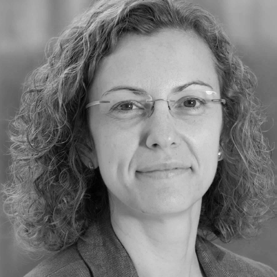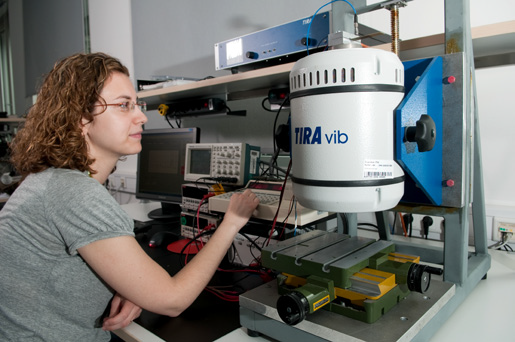The last word … goes to Dr. Loreto Mateu from Fraunhofer IIS


Dr. Mateu, what do you find particularly fascinating about microelectronics?
Microelectronics is at the heart of complex electronic systems. Today, it provides the necessary integrated circuitry for IoT, Industry 4.0, and AI.
How would you explain your work to your grandmother?
In the Advanced Analog Circuits (AAC) group at the Fraunhofer Institute for Integrated Circuits IIS in Erlangen, we work on miniaturized analog circuits. These types of circuits enable, among other things, the sensor signals captured to arrive and be understood in the integrated circuit. With a digital thermometer, for example, the measured temperature (analog signal) is shown as a number on the digital display.
What project are you currently working on?
The AAC group is currently working on the USeP (Universal Sensor Platform) and OCEAN12 (Opportunity to Carry European Autonomous driviNg further with FDSOI technology up to 12 nm node) projects. Here, we use smaller technologies (22 nm and 12 nm FDSOI technology) to develop analog to digital converters and back-bias generators. Currently I am also preparing project proposals in the area of neuromorphic hardware with an analog deep learning accelerator.
Which of the projects being worked on by your colleagues in other Fraunhofer institutes interests you in particular?
I find the development of non-volatile memories with FeFETs for neuromorphic hardware at the Fraunhofer Institute for Photonic Microsystems IPMS in Dresden very interesting. I also find the memristive memories from the Fraunhofer Institute for Electronic Nanosystems ENAS in Chemnitz, which are also non-volatile memories, very exciting.
What invention would you not like to do without in daily life?
Antibiotics and vaccines have saved many lives and will continue to do so. Washing machines and dishwashers have also greatly simplified our lives.
Let’s look into the future. What would you like to have achieved in five or ten years’ time, either in your career or your personal life?
After eleven years, I still find it exciting to work at Fraunhofer IIS, and I want it to stay that way. In the future, I would like to work on a few projects connected to neuromorphic hardware.
If you could meet someone well known – from either the past or present – who would it be and why?
I would love to meet Marie Curie. I consider her a role model for female scientists. She won Nobel Prizes for both chemistry and physics, which I find very impressive.
What song belongs to the “soundtrack” of your life?
There are a lot, such as “Devuélveme la vida” by Malú and Antonio Orozco, “It’s My Life” by Bon Jovi, “Summer of ’69” by Bryan Adams, “Solamente Tú” by Pablo Alborán, and “My Hometown” by Bruce Springsteen.
Last, but not least: Can you tell us what motto you live by?
“Never put off till tomorrow what you can do today.”
About Dr. Loreto Mateu
Dr. Loreto Mateu obtained her bachelor’s degree in industrial engineering at the Universitat Autònoma de Barcelona in 1999. Until 2002, she was working on her master’s in electrical engineering at the Universitat Politècnica de Catalunya in Spain. In 2009, she completed her thesis on “Energy Harvesting from Human Passive Power.” She has worked at Fraunhofer IIS since 2007, first as a research associate and then – since 2012 – as a lead scientist in the Power-optimized Systems department. She has been group head of Advanced Analog Circuits in the Integrated Circuits and Systems department since 2018. Her interests are power management and the electrical modeling of electromechanical actuators and neuromorphic hardware.
Last modified: